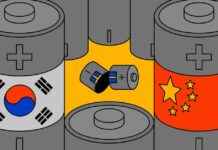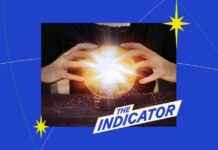Recognizing the Symptoms of Dementia: A Comprehensive Guide
Dementia is a condition that affects millions of people worldwide, causing a decline in cognitive function severe enough to interfere with daily life. Understanding the early warning signs of dementia is crucial for early detection and intervention. By recognizing these symptoms, individuals and their loved ones can seek the necessary medical care and support to manage the condition effectively.
What is Dementia and Who Does it Affect?
Dementia is not a specific disease but rather a term used to describe a group of symptoms related to cognitive decline. Alzheimer’s disease is the most common form of dementia, accounting for 60-80% of cases. Other types of dementia include vascular dementia, Lewy body dementia, and frontotemporal dementia. Dementia can affect anyone, regardless of age, but it is more commonly seen in older adults. As the population ages, the prevalence of dementia is expected to increase significantly in the coming years.
Early Warning Signs to Look Out For
Recognizing the early symptoms of dementia can be challenging, as they often start subtly and progress slowly over time. However, being aware of these signs can help individuals and their families take proactive steps to address the condition. Common early warning signs of dementia include:
1. Memory Loss: Forgetfulness is a common early symptom of dementia, especially forgetting important dates, events, or recently learned information. Individuals may also repeat themselves in conversations or ask the same questions repeatedly.
2. Difficulty Performing Familiar Tasks: People with dementia may struggle to complete tasks that were once routine for them, such as cooking a meal, managing finances, or following a familiar recipe.
3. Disorientation and Confusion: Individuals with dementia may become disoriented and confused about time, place, or people. They may lose track of dates, seasons, or the passage of time.
4. Changes in Mood and Personality: Dementia can cause significant changes in mood and behavior, leading to increased irritability, anxiety, or depression. Individuals may also become more withdrawn or socially isolated.
5. Trouble with Language and Communication: People with dementia may have difficulty finding the right words, following a conversation, or understanding complex instructions. They may also struggle with writing or spelling.
It is essential to note that experiencing one or more of these symptoms does not necessarily mean a person has dementia. However, if these signs persist or worsen over time, it is crucial to seek medical advice for a proper evaluation and diagnosis.
Expert Insights and Recommendations
Dr. Sarah Johnson, a neurologist specializing in dementia at the renowned Memory Clinic, emphasizes the importance of early detection and intervention in managing dementia. “Early diagnosis allows for early intervention, which can help slow the progression of the disease and improve the quality of life for individuals with dementia,” says Dr. Johnson.
She recommends that individuals who suspect they or a loved one may be experiencing early signs of dementia should consult with a healthcare provider promptly. A comprehensive evaluation, including medical history, cognitive assessments, and imaging tests, can help determine the underlying cause of the symptoms and guide appropriate treatment and care.
In conclusion, recognizing the early warning signs of dementia is crucial for timely intervention and support. By being aware of these symptoms and seeking medical advice promptly, individuals and their families can take proactive steps to manage the condition effectively and improve the quality of life for those affected by dementia. Remember, early detection is key in the fight against dementia and its impact on individuals and their loved ones.



















